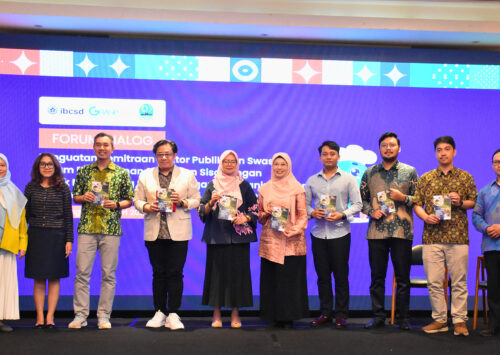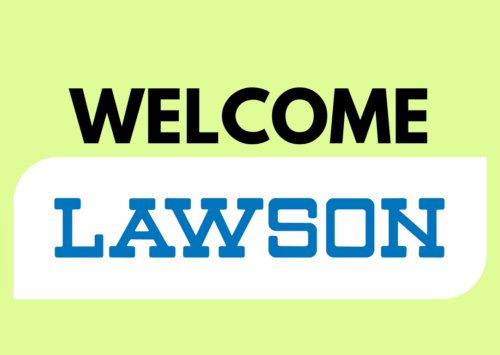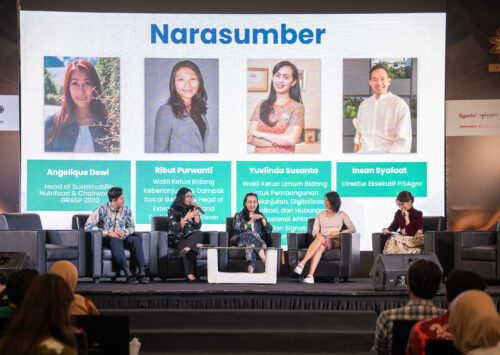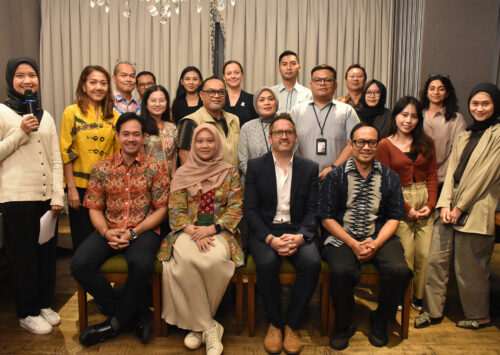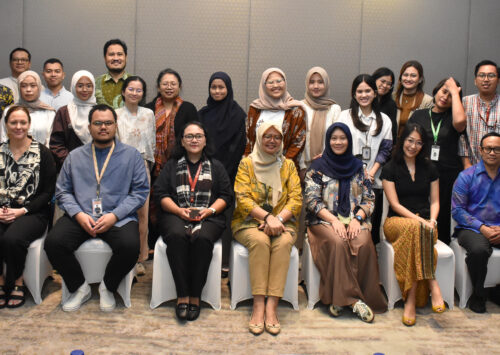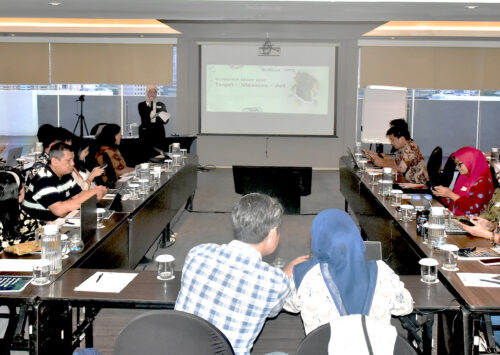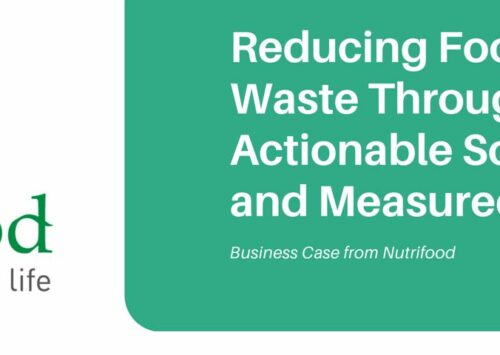Jakarta, 14 August 2025 – The Indonesia Business Council for Sustainable Development (IBCSD) through GRASP 2030 together with the Indonesian Food and Beverage Producers Association (GAPMMI) hosted a collaborative workshop at Ra Suites Simatupang, bringing together 23 leading food and beverage companies including Nutrifood, Multi Bintang Indonesia (MBI), and Great Giant Foods (GGF). The event, titled “Turning the Challenge of Food Loss and Waste into Business Opportunities through Collaborative Action,” was held to introduce the GRASP 2030 initiative, explore the Target-Measure-Act (TMA) approach, and share practical business cases. Through opening remarks led by IBCSD and GAPMMI, presentations, interactive discussions, and sharing sessions, the workshop highlighted why reducing food loss and waste (FLW) is not only vital for environmental sustainability and national food security, but also a strategic opportunity to improve efficiency, reduce costs, and strengthen competitiveness across the sector.
The collaborative workshop between GAPMMI and IBCSD through the GRASP 2030 initiative opened with a strong call for joint action to address FLW. Since its launch in 2021, GRASP 2030 has grown from 9 to 39 members, uniting companies and organizations across the food value chain with the TMA approach to halve FLW by 2030. The opening remarks emphasized that tackling FLW is not only an environmental necessity but also a business opportunity, helping companies cut costs, improve efficiency, create circular economy models, and strengthen Indonesia’s food system resilience. With GAPMMI’s engagement, the partnership highlights how reducing FLW can drive both sustainable development and long-term business success.
Nutrifood: From Awareness to Impact
For Nutrifood, a company established in 1979 and known for products like Nutrisari, the journey began in 2018, inspired by a wedding organizer that collaborated with food redistribution for surplus banquet. Discovering that up to 50% of wedding banquet food often ended up as surplus, Nutrifood felt inspired by that initiative and implemented similar solutions to food waste in their canteen.
Today, that commitment is integrated into daily operations—systematically measuring FLW, separating edible from non-edible food, and even converting liquid products like milk into compost and fertilizer. Importantly, employees are also engaged through ongoing education and awareness programs. By joining GRASP 2030, the company gained access to training, new partnerships, and valuable collaboration opportunities; turning sustainability into both a responsibility and a competitive advantage. The results speak for themselves: within a single year of joining, Nutrifood reduced FLW by 20% while achieving significant cost savings.
Multi Bintang Indonesia: Transforming Waste into Value
As part of Heineken Global, Multi Bintang Indonesia (MBI) has set a bold goal: zero waste to landfill by 2030. The company has embraced upcycling as a core strategy to create value from what was once seen as a challenge, and turn it into opportunities.
Each month, spent grain is transformed into granola bars and other food products in partnership with Reharvest, while other organic waste is processed by local NGOs to support community livelihoods. Although storage, partner capacity, and seasonal variations present ongoing hurdles, MBI views GRASP 2030 as a vital platform to strengthen collaboration, enhance transparency, and build stakeholder trust. Participation in the initiative not only supports cost savings and operational efficiency but also reinforces MBI’s social license to operate and aligns with Heineken’s global sustainability vision.
Great Giant Foods: Maximizing Every Harvest
Great Giant Foods (GGF), an integrated agribusiness in Lampung, produces bananas, guavas, and pineapples. GGF faces fluctuations caused by weather and climate, making food loss an unavoidable risk. Yet, rather than waste, the company sees opportunity.
Surplus fruits are channeled into multiple solutions: donations to local communities, transformation into value-added products such as fruit chips, and use as feed for maggot farming to support organic waste management. GGF also partners with universities including UGM (Yogyakarta), Unila (Lampung), and Unpad (West Java) to research and scale innovative ways to absorb and utilize more harvests.
By engaging with GRASP 2030, GGF has gained validation for its food loss measurement methods, inspiration from peers, and access to best practices that enhance supply chain efficiency while reducing costs.
Shared Insights: A Collective Path Forward
The open Q&A session underscored the value of cross-industry learning. Participating companies raised challenges of redistributing surplus food in Eastern Indonesia, where partners are limited. Nutrifood expected that GRASP 2030 could develop a national directory of food redistribution partners to scale up a safer and more equitable distribution of food surplus across Indonesia.
Building Momentum Together
This session reaffirmed that tackling FLW is not just about solving a problem, it is about creating opportunities too. Businesses are reducing costs, strengthening consumer trust, empowering communities, and protecting the environment.
Through GRASP 2030, companies like Nutrifood, MBI, and GGF are proving that collaboration turns challenges into solutions, and solutions into long-term impact. Together, they are paving the way toward a future where every resource is valued and nothing goes to waste.
